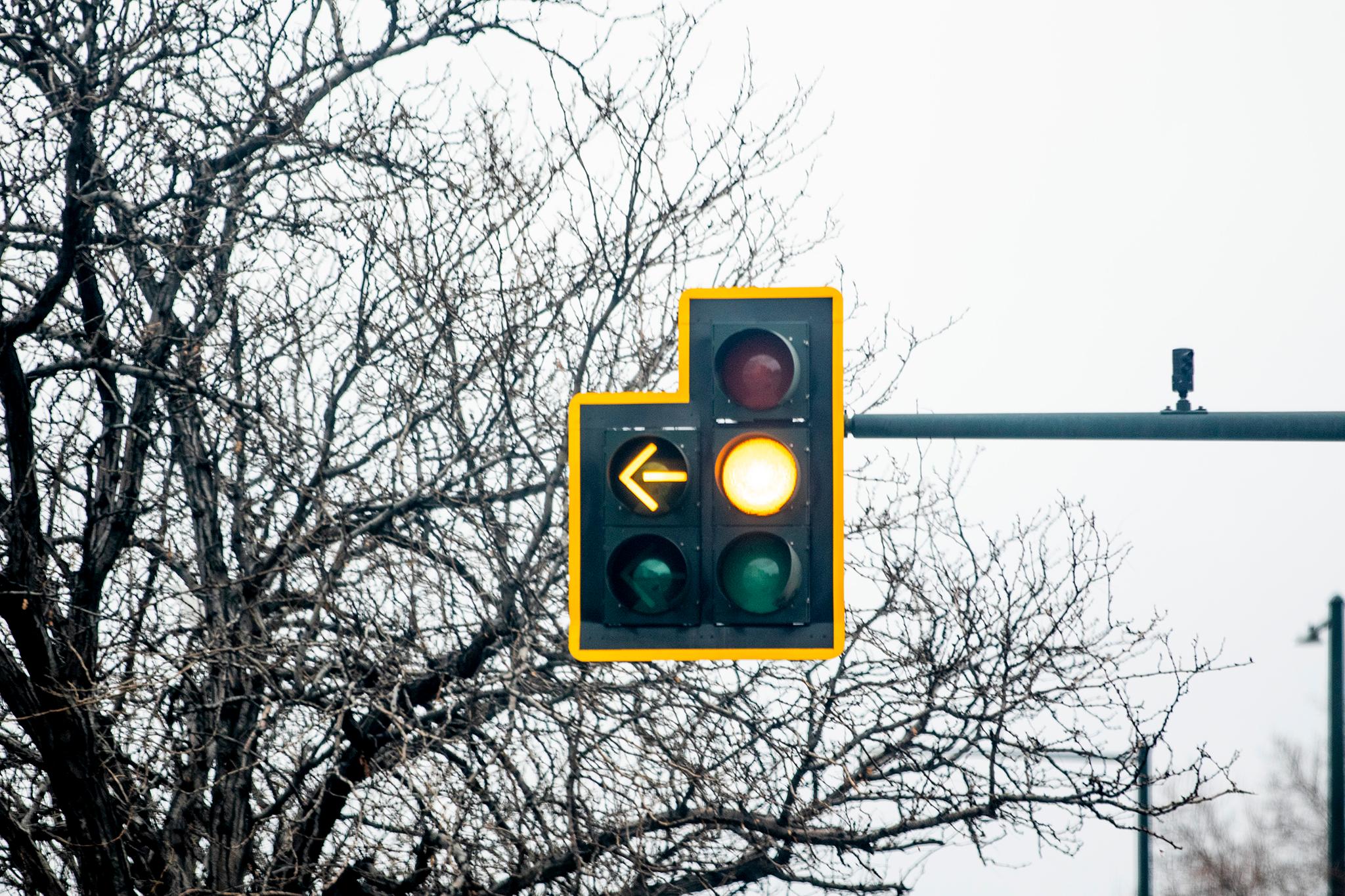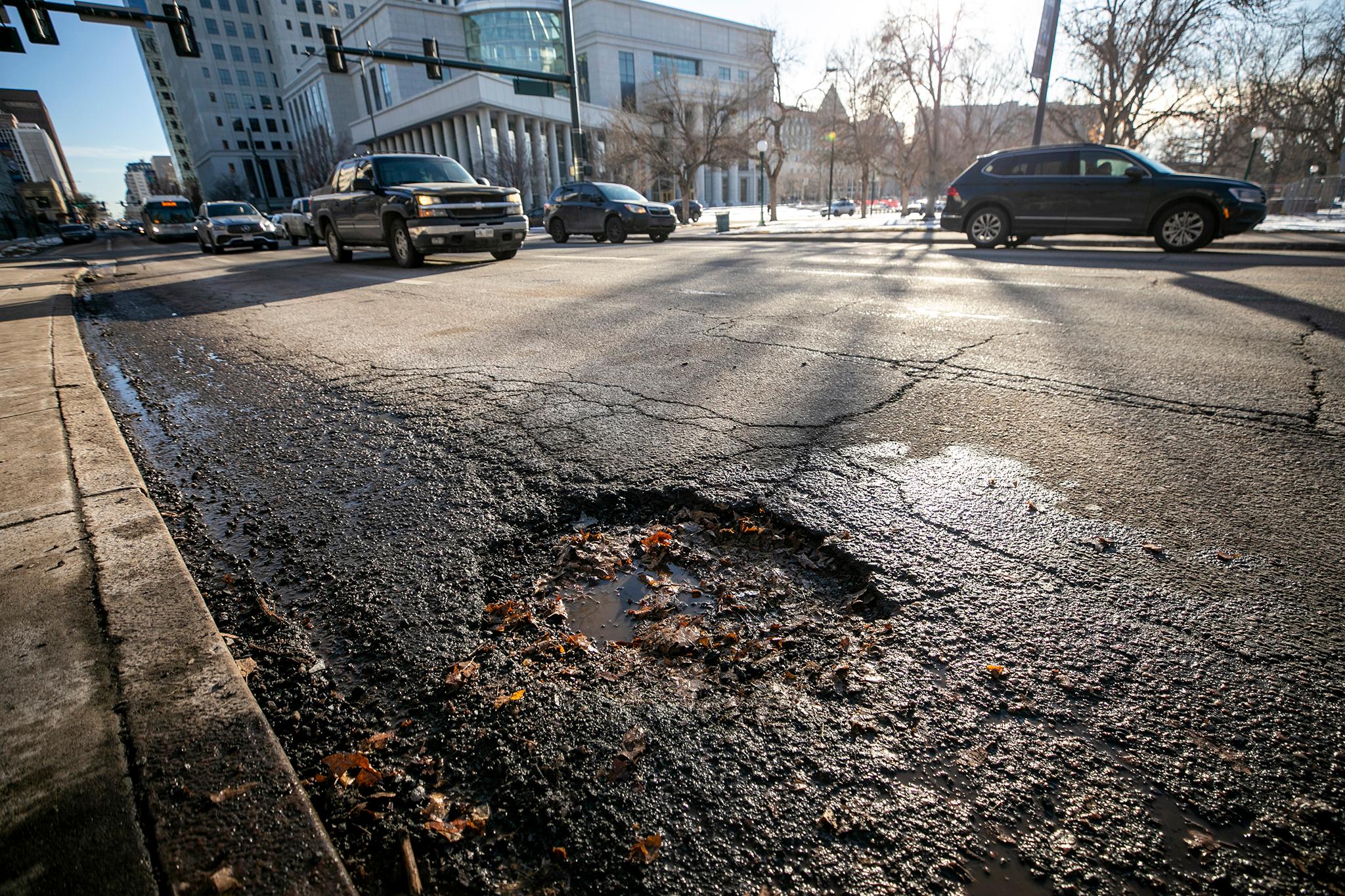In search of the elusive inbox-zero, I realized I had a bunch of different transit questions hanging around my inbox. So I looked for answers! From traffic lights to potholes to traffic, here are some answers to questions several of you asked about transportation and related matters:
City Council voted to decriminalize jaywalking and bring its laws in line with state laws. What are the state rules we're now in line with?
While the jaywalking ordinance primarily focused on deprioritizing police enforcement, the legislation also aligned Denver's laws with Colorado laws, since city laws previously used stricter language.
The main difference is in wording. State laws call for pedestrians to yield to cars when crossing outside a crosswalk, and explicitly allow for walking on the shoulder when there isn't a sidewalk. Denver's previous laws prohibited all crossing except at a crosswalk. While cars still have the right-of-way, the new ordinance aligns with state laws, and instructs police to make enforcement a low priority.
Is there a way to submit to the city for payment over pothole damages?
Yes! You can file a claim with the city here.
You have to file within 182 days (or 26 weeks) of the incident. According to the City Attorney's Office, investigations take around six to eight weeks and could lead to reimbursement "based upon the fair market value of damaged items, discounted for depreciation." If your insurance company is involved, they can also seek reimbursement from the city.

Are those flashing yellow left turn arrows new? Could they increase confusion over who has the right of way?
If you consider 2013 pretty recent, then yes.
"Flashing yellow arrows are considered a viable alternative to the circular green signal and have been found to decrease left turn crashes and improve safety," said Department of Transportation and Infrastructure spokesperson Nancy Kuhn. "Typically, we install flashing yellow arrows at locations where we can reduce congestion and travel delays by maximizing the number of left turns drivers can make in a cycle, and where drivers are likely to find gaps in oncoming traffic."
Kuhn said studies show the arrows are "intuitive" to drivers, and that the city can program them to change from solid green arrows to flashing yellow arrows at different points in the day, depending on traffic patterns.
Do developers reimburse the city when they cause lane closures for construction?
Yes.
"Anyone that requests to close a travel lane, parking lane, alley or sidewalk will pay a fee for that via a street occupancy permit," Kuhn said. "Some of the things that factor into the fees charged includes roadway type, time of day, number of lanes closed, length of closure in feet, and length of closure in days."
Do Denver's high levels of car theft affect insurance rates? If so, how?
"The answer is categorically yes," said AAA Colorado spokesperson Skyler McKinley. "Denver and Colorado are regularly in the top states per capita for both automotive theft overall and catalytic converter theft. We also have some of the fastest rising insurance rates in the country. They're linked."
McKinley said it's hard to put an exact number on how much rates have risen due to car thefts specifically. "What we do know is that given the extent of car thefts, and given the extent of repairs that are required and related to catalytic converters, we see a lot of insurance claims," he said. "More insurance claims generally means higher premiums."
Car theft, and crime in general, has become a political talking point in recent months. A bill that would make almost all car thefts a felony-level crime advanced in Colorado's State Legislature last month, and the Denver Police Department just announced a new stolen vehicle tracking program.
While politicians and police talk about how to tackle crime, McKinley said everyday car owners can do their part to bring rates down by investing in theft prevention measures, especially for people who drive commonly stolen models like older Ford F-150s, Chevy Silverados and older cars in general. This could look like steering wheel locks, transponder keys and catalytic converter locks, or even just parking in well-lit areas and checking on your car when you don't drive it for a few days. McKinley also advised people to avoid parking at the airport, which sees high rates of car theft (you can check other local hot spots here).
Now that the I-70 project is done, is there any evidence that it has alleviated traffic? How might we know?
This is a tough one to answer! Colorado Department of Transportation spokesperson Stacia Sellers said the state doesn't have data on this yet.
In September, when highway construction ended but work on the park above I-70 continued, residents told Denverite local roads seemed busier than usual, with lost trucks driving through neighborhoods. Councilmember Candi CdeBaca, who represents Elyria-Swansea and was involved in activism against the project before her time on Council, said local traffic is still an issue.
"I-70 absolutely has not alleviated traffic in the area," she said. "Most residents feel like it created more semi traffic WITHIN the community on 43rd, 44th, 45th."
Have more questions? Drop me a line at [email protected].












